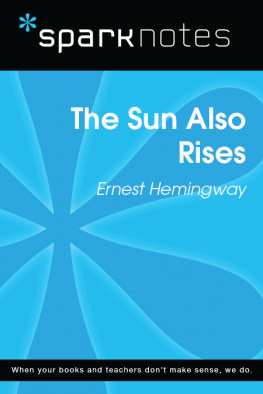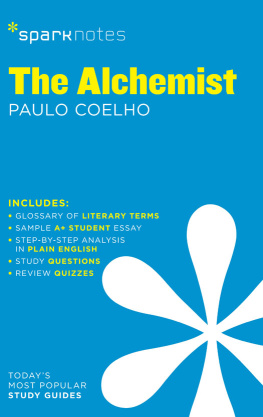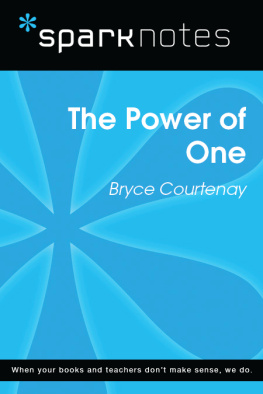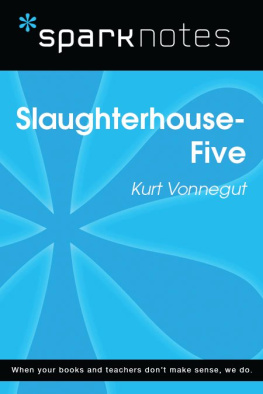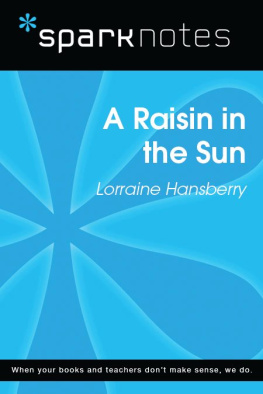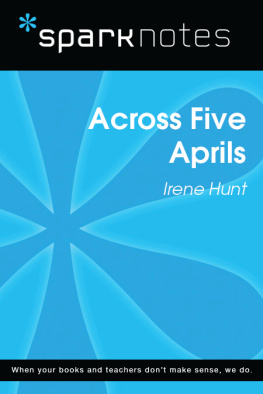The Sun Also Rises
Ernest Hemingway
2003, 2007 by Spark Publishing
This Spark Publishing edition 2014 by SparkNotes LLC, an Affiliate of Barnes & Noble
All rights reserved. No part of this publication may be reproduced, stored in a retrieval system, or transmitted in any form or by any means (including electronic, mechanical, photocopying, recording, or otherwise) without prior written permission from the publisher.
Sparknotes is a registered trademark of SparkNotes LLC
Spark Publishing
A Division of Barnes & Noble
120 Fifth Avenue
New York, NY 10011
www.sparknotes.com /
ISBN-13: 978-1-4114-7781-0
Please submit changes or report errors to www.sparknotes.com/.
10 9 8 7 6 5 4 3 2 1
Context
E rnest Miller Hemingway was born on July 21, 1899 , in Oak Park, Illinois, a conservative upper-middle-class suburb of Chicago. He graduated from high school in 1917 and worked as a reporter for the Kansas City Star. Hemingway sailed to Europe in May 1918 to serve as a volunteer ambulance driver for the Italian Red Cross during World War I. Within weeks, he suffered a serious injury from fragments of an exploding mortar shell on the Italian front. He recovered in a hospital in Milan, where he had a romantic relationship with a nurse, Agnes von Kurowsky. This incident provided the inspiration for his novel A Farewell to Arms, published in 1929 .
When the nineteen-year-old Hemingway returned home in 1919 , his parents did not understand the psychological trauma he had suffered during the war, and they pestered him to get a job or go to college. His short story Soldiers Home draws on his difficulties in coping with his parents and friends romanticized ideals of war.
Hemingway eventually began working for the Toronto Star Weekly. He married his first wife, Hadley Richardson, in 1921 . He became the European correspondent for the Toronto Daily Star and moved to Paris with his wife in December 1921 . There, Hemingway became friends with the poet Ezra Pound, the writer Gertrude Stein, the artists Joan Mir and Pablo Picasso, and other individuals belonging to the group of prominent expatriate writers and artists living in postwar Paris. Hemingways reputation began to grow both as a journalist and as an author of fiction. His novel The Sun Also Rises, published in 1926 , established him as one of the preeminent writers of his day.
The Sun Also Rises portrays the lives of the members of the so-called Lost Generation, the group of men and women whose early adulthood was consumed by World War I. This horrific conflict, referred to as the Great War, set new standards for death and -immorality in war. It shattered many peoples beliefs in traditional values of love, faith, and manhood. Without these long-held notions to rely on, members of the generation that fought and worked in the war suffered great moral and psychological aimlessness. The futile search for meaning in the wake of the Great War shapes The Sun Also Rises. Although the characters rarely mention the war directly, its effects haunt everything they do and say.
Amid the increasing literary success that followed the publication of The Sun Also Rises, Hemingways marriage began to fall apart, and he divorced Richardson in 1927 . He quickly remarried, to a fashion reporter named Pauline Pfeiffer. In 1928 , they moved to Key West, Florida, where they lived for over a decade. Hemingways life, however, was far from rosy. His father, Clarence Hemingway, committed suicide in 1928 after developing serious health and financial problems, and Hemingway engaged in an affair with a woman named Martha Gelhorn, which led to his divorce from Pfeiffer. He married Gelhorn in 1940 .
In 1937 , Hemingway traveled to Spain to cover the Spanish Civil War for the North American Newspaper Alliance. His novel For Whom the Bell Tolls, based on his experiences in Spain, was published in 1940 , after he moved to Havana, Cuba, with Gelhorn. The book became an instant success, but he did not publish another novel for ten years. Meanwhile, he and Gelhorn divorced, and Hemingway married Mary Welsh, his fourth and last wife. Hemingway won the Pulitzer Prize in 1953 for his phenomenally successful The Old Man and the Sea and the Nobel Prize in Literature in 1954 .
Deteriorating health began to plague Hemingway. His heavy drinking increased his health problems, and he began to suffer from wild mood swings. In 1960 , Hemingway and Welsh moved to Ketchum, Idaho. Not long afterward, he entered the Mayo Clinic to undergo treatment for severe depression. His depression worsened in 1961 , and on July of that year, Hemingway woke early in the morning and committed suicide by shooting himself in the head.
Hemingways style differs distinctively from that of writers before him, and his work helped shape both the British and American literature that followed it. His prose is extremely spare, succinct, and seemingly very direct, although his speakers tend to give the impression that they are leaving a tremendous amount unsaid. Modern prose fiction continues to be heavily influenced by Hemingways technique in this regard. His body of work continues to be considered among the most important in the development of -twentieth-century literature.
Plot Overview
T he Sun Also Rises opens with the narrator, Jake -Barnes, delivering a brief biographical sketch of his friend, Robert Cohn. Jake is a veteran of World War I who now works as a journalist in Paris. Cohn is also an American expatriate, although not a war veteran. He is a rich Jewish writer who lives in Paris with his forceful and controlling girlfriend, Frances Clyne. Cohn has become restless of late, and he comes to Jakes office one afternoon to try to convince Jake to go with him to South America. Jake refuses, and he takes pains to get rid of Cohn. That night at a dance club, Jake runs into Lady Brett Ashley, a divorced socialite and the love of Jakes life. Brett is a free-spirited and independent woman, but she can be very selfish at times. She and Jake met in England during World War I, when Brett treated Jake for a war wound. During Jake and Bretts conversation, it is subtly implied that Jakes injury rendered him impotent. Although Brett loves Jake, she hints that she is unwilling to give up sex, and that for this reason she will not commit to a relationship with him.
The next morning, Jake and Cohn have lunch. Cohn is quite taken with Brett, and he gets angry when Jake tells him that Brett plans to marry Mike Campbell, a heavy-drinking Scottish war veteran. That afternoon, Brett stands Jake up. That night, however, she arrives unexpectedly at his apartment with Count Mippipopolous, a rich Greek expatriate. After sending the count out for champagne, Brett tells Jake that she is leaving for San Sebastian, in Spain, saying it will be easier on both of them to be apart.
Several weeks later, while Brett and Cohn are both traveling outside of Paris, one of Jakes friends, a fellow American war veteran named Bill Gorton, arrives in Paris. Bill and Jake make plans to leave for Spain to do some fishing and later attend the fiesta at Pamplona. Jake makes plans to meet Cohn on the way to Pamplona. Jake runs into Brett, who has returned from San Sebastian; with her is Mike, her fianc. They ask if they may join Jake in Spain, and he politely responds that they may. When Mike leaves for a moment, Brett reveals to Jake that she and Cohn were in San Sebastian together.
Bill and Jake take a train from Paris to Bayonne, in the south of France, where they meet Cohn. The three men travel together into Spain, to Pamplona. They plan on meeting Brett and Mike that night, but the couple does not show up. Bill and Jake decide to leave for a small town called Burguete to fish, but Cohn chooses to stay and wait for Brett. Bill and Jake travel to the Spanish countryside and check into a small, rural inn. They spend five pleasant days fishing, drinking, and playing cards. Eventually, Jake receives a letter from Mike. He writes that he and Brett will be arriving in Pamplona shortly. Jake and Bill leave on a bus that afternoon to meet the couple. After arriving in Pamplona, Jake and Bill check into a hotel owned by Montoya, a Spanish bullfighting expert who likes Jake for his earnest interest in the sport. Jake and Bill meet up with Brett, Mike, and Cohn, and the whole group goes to watch the bulls being unloaded in preparation for the bullfights during the fiesta. Mike mocks Cohn harshly for following Brett around when he is not wanted.

